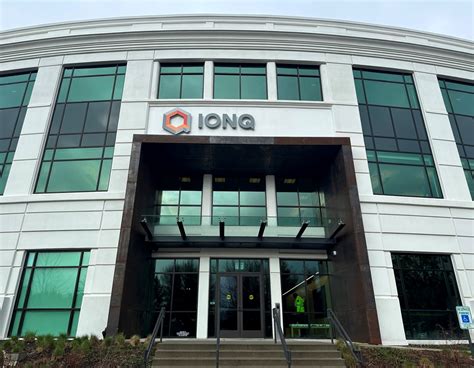Founded in 2015 by physicists Chris Monroe and Jungsang Kim, IonQ emerged from over 25 years of academic research in trapped-ion quantum computing. Headquartered in College Park, Maryland, USA, the company is dedicated to developing the world’s best quantum computers to solve the most complex problems across sectors like chemistry, medicine, finance, logistics, space, and national security.
Founding & Leadership
- Founders: Christopher Monroe and Jungsang Kim—pioneers in quantum research, with Monroe notably having built the first controllable quantum gate using trapped ions.
- Current Leadership:
- Niccolo de Masi, President & CEO (as of 2025)
- Peter Chapman, Executive Chair, former CEO overseeing key strategic expansions
Technology & Products
- Trapped-Ion Architecture: Uses ionized atoms as qubits, a design known for high fidelity, coherence, and full connectivity—though it faces challenges in gate speed and hardware size.
- Quantum Systems Portfolio (via IonQ’s website): Harmony (retired), Aria, Forte (#AQ 36), Forte Enterprise (data-center deployable), and upcoming Tempo (~#AQ 64). Forte was benchmarked at 30 qubits and full connectivity, achieving up to #AQ 29 performance.
Cloud Access & Software
IonQ’s hardware is available through industry-leading cloud partners—AWS Braket, Microsoft Azure Quantum, Google Cloud Marketplace—alongside its own Quantum Cloud service. The company provides developer tools and SDK integration across platforms like Qiskit, Cirq, and PennyLane.
Commercial Strategy & Partnerships
- Funding:
- Seed ($2M, NEA) → Series B ($20M, GV & NEA) → $55M led by Samsung/Mubadala (2019).
- Went public via SPAC on NYSE under ticker IONQ in October 2021—first pure-play quantum hardware IPO.
- April 2025: Raised ~$1B in equity, bringing cash reserves to ~$1.68B.
- Key Partnerships & Deals:
- Cloud partnerships with AWS, Microsoft, Google since 2019.
- US Air Force Research Lab deal (~$21M).
- KISTI (South Korea) named IonQ as their primary tech provider for a 100-qubit system.
Manufacturing & Facilities
- IonQ operates two main production hubs: its Maryland HQ and a 100,000 sq ft facility in Bothell, Washington—the first dedicated quantum computer factory in the US—housing R&D, manufacturing, and a second data center.
- The Bothell site supports systems like Forte Enterprise and Tempo and is rapidly expanding staffing and infrastructure.
Expansion & Acquisitions
- June 2025: Announced $1.075B acquisition of Oxford Ionics (UK), integrating semiconductor-ion-trapped technology aimed at scaling toward fault-tolerant quantum systems (~2M physical qubits).
- July 2025: Completed acquisition of Capella Space, enabling space-based quantum key distribution (QKD) and laying groundwork for a quantum internet.
Financial & Market Position
- Market cap: ~$10B (July 2025), with ambitions to become the “Nvidia of quantum computing” by offering full-stack quantum solutions.
- Revenue Q1 2025 ~ $7.6M; net loss ~$32M; bookings exceeded $100M cumulative in 2023, with projected 2025 revenue of $75–95M.
- Analysts expect IonQ could capture up to ~20% of the quantum hardware market by 2035.
Research & Scientific Impact
-
- IonQ’s machines have enabled frontier research, such as:
- First quantum simulation of neutrinoless double‑β decay using Forte Enterprise.
- Chemical dynamics simulations via distributed 11‑qubit Harmony systems.
- High-fidelity benchmarking of 30-qubit trapped‑ion systems.
- IonQ’s machines have enabled frontier research, such as:
Summary
IonQ stands as a trailblazer in commercial quantum computing, tackling the full stack—from hardware design to cloud access—and backed by substantial funding and global R&D/manufacturing capabilities. With strategic acquisitions in ion-trap hardware and space-based quantum communications, a robust product line (Aria, Forte, Tempo), and growing financial momentum, IonQ is shaping itself as a dominant pure-play contender in shaping the quantum future.
References: Financial Times, arXiv, Barron’s, Barron’s, Wikipedia, Axios, GeekWire, Data Center Dynamics, oxionics.com



